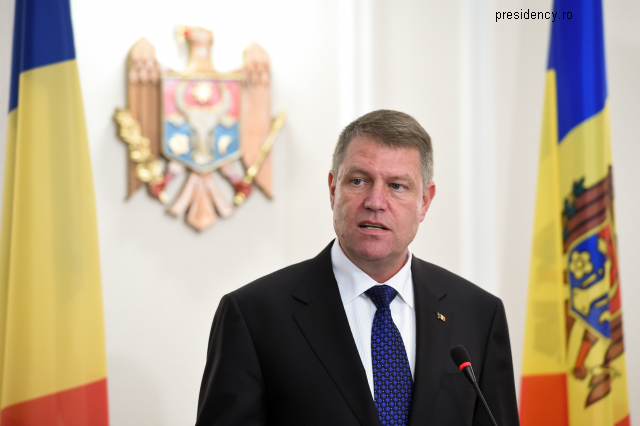Romania supports Moldova’s European accession
Despite being the most vocal supporter of Moldovas EU integration efforts, Romania might cancel its loan to this country, amongst the growing internal political turmoil.

Valentin Țigău, 10.11.2015, 13:45
Romania’s President Klaus Iohannis on Monday sent the law on the refundable loan to Moldova back to Parliament for re-examination. The President claims the law is untimely, expressing concern over Moldova’s commitment to continue the line of reforms and implement the Association Agreement with the EU.
Worth 150 million euros, the loan will be made available from funds resulted from the privatization process. The Governments of the two countries originally agreed on the loan on October 7, 2015, based on the joint declaration for setting up a strategic partnership between Romania and the Republic of Moldova for the European integration of Moldova, signed in Bucharest on April 27, 2010. Under the law, the refundable loan will help finance the budget deficit of Moldova and refund its public debt.
The loan can be disbursed in a maximum of three separate installments, each with a maturity date of maximum five years. Moldova would use the money to pay a substantial share of its outstanding public salaries and pensions. The Republic of Moldova is currently in a severe political and financial deadlock caused by bank frauds and acts of corruption that led to the fall of the Strelet Cabinet and the IMF’s refusal to sign a new loan agreement.
In the document for the loan agreement with Moldova, Romania stipulated the loan would be handed out only if Chisinau signed an agreement with the IMF. Democrat and Liberal leaders in Chisinau hailed president Iohannis’ announcement on Monday, seeing Romania’s decision to freeze the loan as the normal thing to do.
Meanwhile, Moldova’s president Nicolae Timofti started consultations with parliamentary parties with a view to nominating a new Prime Minister. After the breakup of the Alliance for European Integration, whose leader Vlad Filat has been arrested pending a corruption investigation, the Liberal-Democrats have refused to join forces with the Democrats and the Liberals to make up a new alliance that would ensure them majority in Parliament.
The Communist Party in opposition has argued in favour of a technocratic Cabinet, while the Socialists want snap elections. In another move, the Democrats have started negotiations with the Communists, while the Liberals and the group of independent MPs have ruled out an alliance with the Communists.






























